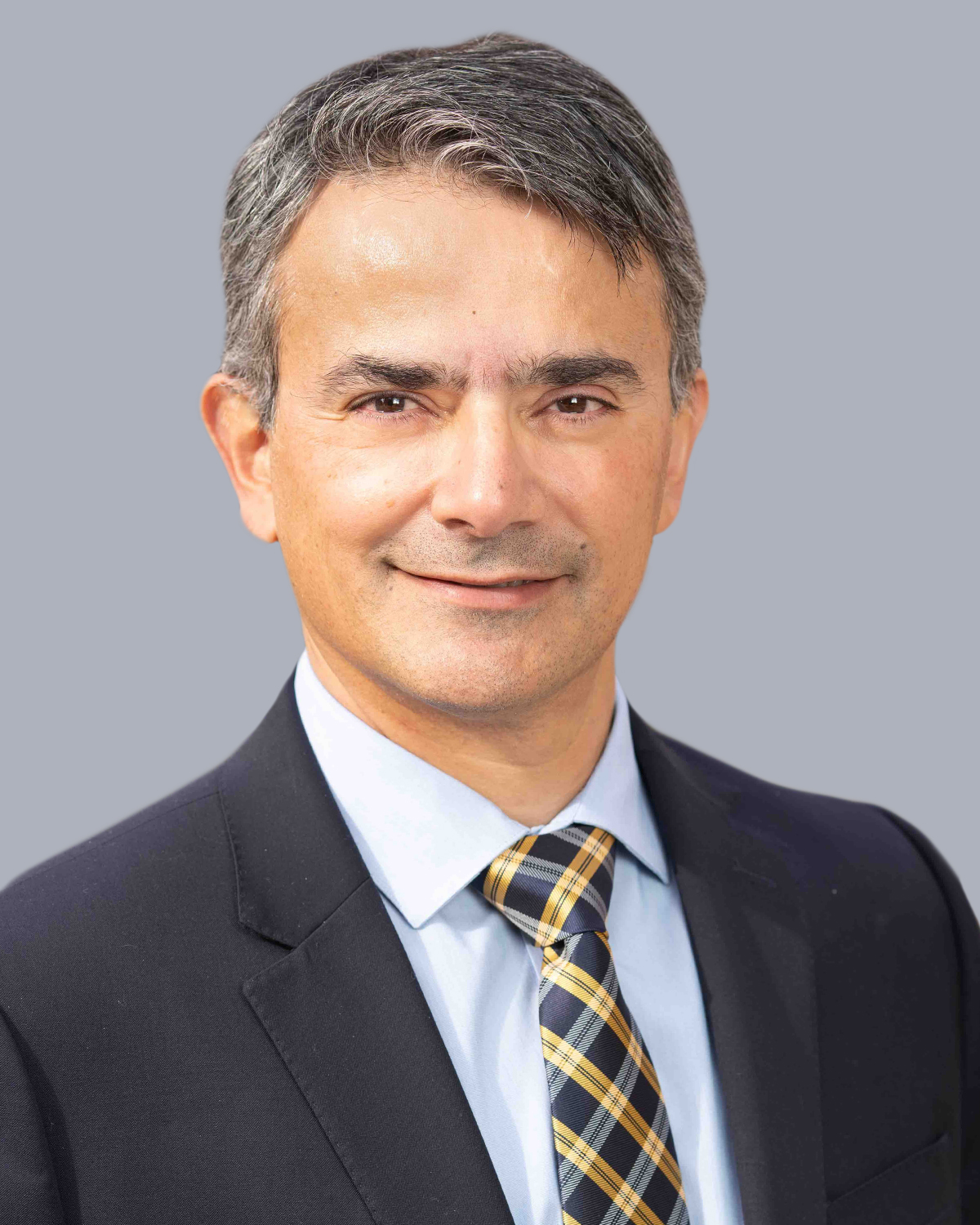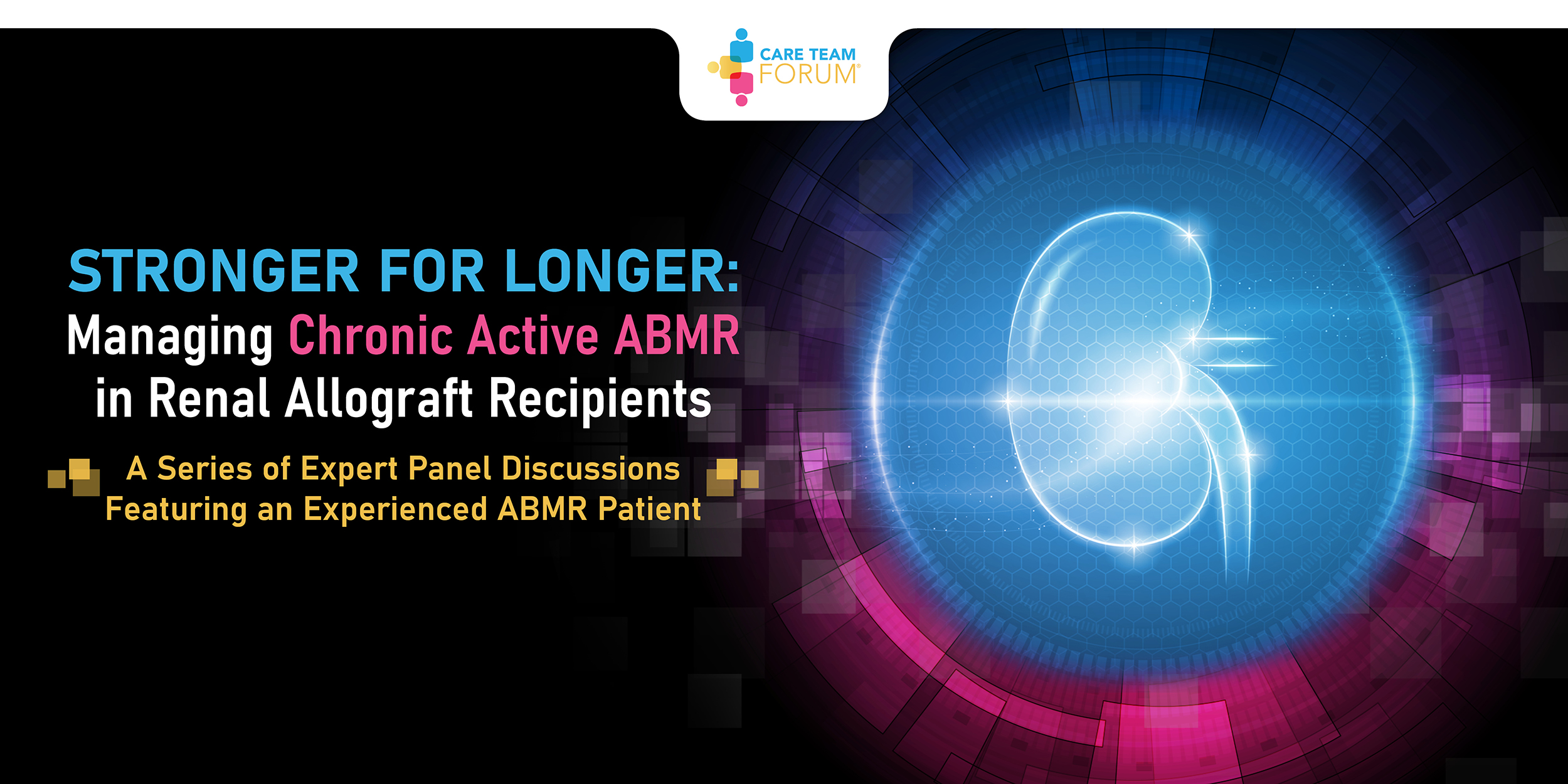A Hybrid Satellite Symposium
Monday, June 5, 2023
12:15 PM – 1:15 PM PDT
Lunch will be provided
Manchester Grand Hyatt
Harbor ABC, Second Level
1 Market Place
San Diego, CA 92101
Also Available to Virtual Attendees via Online Simulcast
You must be registered for the American Transplant Congress 2023 to attend this symposium in-person.
This symposium is not part of the ATC official educational program and the sessions and content are not endorsed by ATC.
FACULTY

Arjang Djamali, MD, MS, FACP, FASN
Professor, Medicine
Tufts University School of Medicine
Chair, Department of Medicine
Maine Medical Center
Portland, ME, United States

Benjamin Adam, MD, FRCPC
Laboratory Site Chief and Anatomical Pathology Divisional Director
University of Alberta Hospital
Associate Professor, Department of Laboratory Medicine and Pathology
Program Director, Renal and Transplantation Pathology Fellowship
University of Alberta
Medical Lead, North Sector Clinical Trials and Research
Alberta Precision Laboratories
Walter C. Mackenzie Health Sciences Centre
Edmonton, Alberta, Canada

Ashley A. Vo, PharmD, FAST
Professor, Pediatrics
David Geffen School of Medicine at UCLA
Director, Transplant Immunotherapy Program
Comprehensive Transplant Center
Cedars-Sinai Medical Center
Los Angeles, CA, United States
Although renal transplantation has become a potentially life-saving treatment for those with renal failure, chronic or late renal graft rejection has been a leading cause of renal graft failure. Management of chronic active antibody-mediated rejection (ABMR) and resulting transplant glomerulopathy are responsible for most cases of chronic graft rejection. In this uniquely designed activity, a dynamic panel of multidisciplinary clinical experts, along with a patient with a history of ABMR, will discuss factors that leads to ABMR. The experts will take you through the importance of Banff diagnostic criteria, along with emerging targeted therapeutic approaches and ongoing clinical trials. The expert panel discussions will provide an opportunity for you to learn how to incorporate newer treatment approaches into the care of patients with ABMR.
PROGRAM AGENDA
of Chronic Active ABMR in Kidney Transplantation
Arjang Djamali, MD, MS, FACP, FASN and Panel including Experienced Patient
Active ABMR Diagnosis
Benjamin Adam, MD, FRCPC and Panel including Experienced Patient
Therapies for Chronic Active ABMR in Kidney Transplant Recipients
Ashley A. Vo, PharmD, FAST and Panel including Experienced Patient
All Faculty
TARGET AUDIENCE
Transplantation, nephrology, general surgery, and internal medicine
EDUCATIONAL OBJECTIVES
Upon completion of this activity, participants should be better able to:
- Describe the pathogenic processes involved in chronic active antibody-mediated rejection (ABMR) in kidney transplantation
- Utilize Banff criteria when diagnosing chronic active ABMR in renal allograft recipients
- Integrate available data on emerging therapies for patients with chronic active ABMR following kidney transplantation
PROVIDER STATEMENT
This activity is provided by RMEI Medical Education, LLC.
SUPPORTER STATEMENT
This activity is supported by an independent educational grant from CSL Behring LLC.
ACCREDITATION
Physician Continuing Medical Education
RMEI Medical Education, LLC designates this live activity for a maximum of 1.0 AMA PRA Category 1 Credit(s)™. Physicians should claim only the credit commensurate with the extent of their participation in the activity.
 Successful completion of this CME activity, which includes participation in the evaluation component, enables the participant to earn up to 1.0 medical knowledge MOC points in the American Board of Internal Medicine's (ABIM) Maintenance of Certification (MOC) program. Participants will earn MOC points equivalent to the amount of CME credits claimed for the activity. It is the CME activity provider's responsibility to submit participant completion information to ACCME for the purpose of granting ABIM MOC credit.
Successful completion of this CME activity, which includes participation in the evaluation component, enables the participant to earn up to 1.0 medical knowledge MOC points in the American Board of Internal Medicine's (ABIM) Maintenance of Certification (MOC) program. Participants will earn MOC points equivalent to the amount of CME credits claimed for the activity. It is the CME activity provider's responsibility to submit participant completion information to ACCME for the purpose of granting ABIM MOC credit.A statement of credit will be issued only upon receipt of a completed activity evaluation form and will be e-mailed to you within 3 weeks. If you have questions regarding the receipt of your e-mailed certificate, please contact RMEI via e-mail at accreditation@rmei.com.
Disclosure of Financial Relationships
RMEI Medical Education, LLC (RMEI) requires instructors, planners, managers, and others in control of educational content to disclose all their financial relationships with ineligible companies over the previous 24 months. All identified financial relationships are thoroughly vetted and mitigated according to RMEI policy. RMEI will disclose to learners the presence or absence of relevant financial relationships for all persons in control of content before the learner engages in the education.
Americans WIth Disabilities Act
 Event staff will be glad to assist you with any special needs (ie, physical, dietary, etc). Please contact RMEI prior to the live event at contact@rmei.com.
Event staff will be glad to assist you with any special needs (ie, physical, dietary, etc). Please contact RMEI prior to the live event at contact@rmei.com.
FEE INFORMATION
There is no fee for this educational activity.
Additional educational activities offered by RMEI Medical Education, LLC can be found
at www.RMEI.com or by calling toll-free (866) 770-RMEI.
